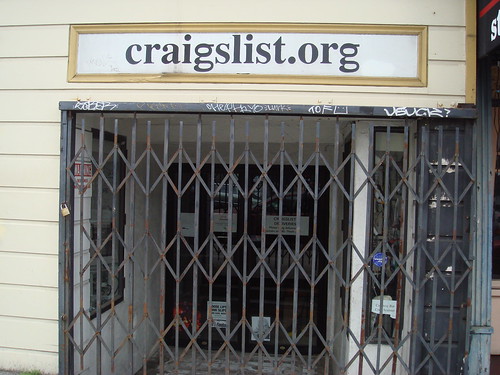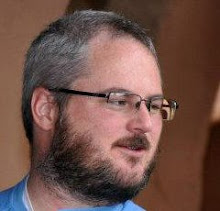I read an interesting post on Facebook today. It was posted by
The United Methodist Church account and it dealt with an innovative church in Missouri that encourages the congregation to send text messages to the pastor with questions during the service and specifically during the sermon. Read the
original article at umc.org. What surprised me (and I guess it shouldn't have) was the overwhelmingly negative responses by people to the Facebook post; I though this was a brilliant way to engage people during worship and I was honestly surprised by how angry some got at the suggestion that we invite the congregation to do anything other than sit passively and absorb the preacher's sermon. You can
read some of the responses to the post, and I encourage you to 'Like' the UMC Facebook page - it's a great source of interesting news and the articles are generally well written.
The reason I'm blogging about this is because I believe it is a powerful reflection on a subject that has been very important to me in the past few years. I have spent a lot of time in academia; from my undergraduate work in physics, math, and the classics, to my graduate work in both physics and theology I have spent more than nine years in the university setting. One of the things I have learned is what it takes in that environment to earn the authority to speak. Degrees, papers, citations; none of this is new to most of us. If you don't have the paper no one is really going to listen to you.
During that same time, I made myself a student of new media (though it wasn't always called that) and I have spent more time than may be appropriate for a person my age and with my responsibilities attempting to stay on the leading edge; I'm not a
Digital Native but I feel like I've worked hard enough for long enough that I'm as close as a Digital Immigrant can be (
read more about Digital Natives and Digital Immigrants).
In my native state of Florida we have a divide almost as sharp as the one in the Digital realm; you're either a native or you're not and there aren't any shades of gray. We do have a way, however, of talking about people who have put in enough time to speak with authority about life in the Sunshine State - they might not be natives but "they have a lot of sand in their shoes." What I'm getting at (in a very roundabout way) is that I know I'm not a Digital Native but I think I've got a lot of sand in my shoes (or bits on my disk?). In fact, I think it is my existence in the nether world between native and immigrant that puts me in a fantastic position to really think about what it means to speak with authority in this new world.
I felt so compelled to spend serious time thinking about authority and new media that I crafted an independent study class while I was at the Claremont School of Theology and spent a semester doing research and experimenting with new media and community. In a sad meta-commentary on the subject, I did quite poorly from an academic perspective in this independent study class because I didn't submit an appropriately academic paper summarizing my findings to my professor. Somehow the website, Facebook page, and twitter following I built along with the essay I wrote summarizing my findings (even though this was the agreed syllabus - grumble grumble) didn't pass muster. I'm fairly certain that my professor's reaction to my work has nothing to do with my findings and the thesis of my essay which was that, essentially, the future doesn't look too bright for professors whose authority is derived from publications and degrees, pastors whose authority is derived from an ordaining body, or educators whose authority is derived from school boards and certifying bodies.
What I have found, and I would love your feedback on this, is that for Digital Natives authority is derived from within a community. Furthermore, regardless of the pedigree you enter a community with you start from square one. PhD? Title? Publications? Bupkus. Your first foray into a community are like a baby's first steps. You gain authority based on the thoughtfulness and sincerity (or wit, or sarcastic sharpness) of your contributions and little else. Being vouched for by others is an effective way to gain ground quickly but ultimately your place in the community is based on what you have contributed to the community.
I believe that, at it's core, this isn't a revolutionary idea. I think what is revolutionary, however, is the idea that we can't carry our authority from one community to another. Chap Clark said a lot about independence within youth communities in his book
Hurt: Inside the World of Today's Teenagers (Highly Recommended!) and based on my own experiences I think it can be expanded more generally to speak about all communities that Digital Natives participate in.
The take away from this (and what it was about the article about texting on umc.org that prompted me to write this) is that this tears down the very idea of an authority figure standing up in the front of the room (both figuratively and literally) and educating or otherwise exerting influence on those listening. It's why, in my opinion, so many Digital Immigrants find themselves torn down and disrespected when they act in authoritative ways that seem completely reasonable to most of us. You listen to your teacher because they are the teacher (because someone told you they were in charge). You learn from your pastor because they are the pastor (because someone told you they were in charge). You go to graduate school and get a piece of paper that tells everyone that what you have to say is important. And it is important - I derive great meaning from the doctoral process - but what I'm trying to suggest is that authority within the academic community that recognizes the doctorate no longer carries over into other communities (if it ever really did).
Of more concern to me is the realization that this same applies to the church community. This is why I am so intrigued by the article referenced above. The sermon becomes a conversation. The pastor of the church is no longer a single point of authority but becomes instead a curator of the conversation. If Digital Natives are to become engaged in the Church then it is my suggestion that the local church must become a community whose authority is grown organically from within. The experiences and understanding of God that a 12 year old youth brings to the conversation is just as important as the seminary education that the pastor of the church brings to the conversation. The anger and hurt that a 30-something single father brings to the community becomes an integral part of the theology of the community; the community must be grown from within. This poses serious problems to institutions - particularly those who send clergy into a church and expect them to represent the church's authority from day one.
What does a church that allows authority to be cultivated within the community look like? I don't know. Is it important that we figure it out? I think it is of the utmost importance. I think Morning Star Church in Missouri is doing some of the hard work that we all need to engage in to keep the Church alive.






 Tuesday, July 12, 2011
Tuesday, July 12, 2011
 Chris Wickersham
Chris Wickersham





 Posted in:
Posted in: 


